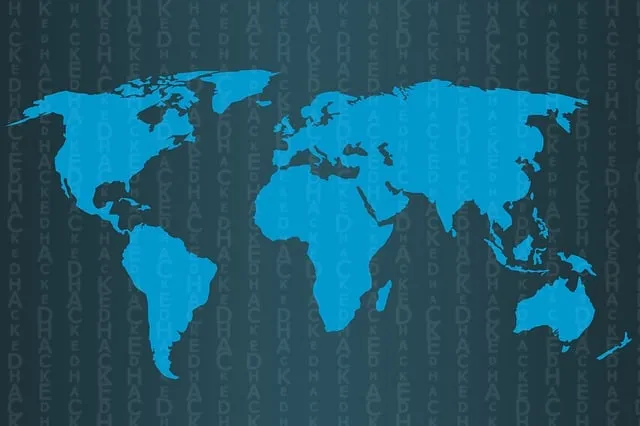Why Does Cybercrime Pay? Uncovering the Factors Behind This Growing Phenomenon
March 14th, 2023

The phrase "crime does not pay" has been ingrained in our minds for decades, with the belief that the risk of getting caught and punished outweighs any potential gain from committing a crime. However, this narrative has been challenged by the rise of cybercrime, and many criminals are reaping the benefits of their illicit activities. Cybercrime has become a lucrative business, with millions of dollars generated yearly. This article will explore why cybercrime pays and what can be done to prevent it.
The Cybercrime Reporting Gap: Why More Needs to be Done to Protect Everyday People
Cybercrime has long been associated with the risks it poses to government and business entities, but the everyday individual feels the most significant impact. Most of these individuals who experience small financial losses or are targeted for harassment, bullying, or stalking do not report the incidents to the police or other authorities. This lack of reporting has far-reaching consequences as federal courts in the United States have limited their jurisdiction to prosecute cybercrime to only if a significant financial threshold has been met or national security concerns are involved. This leaves many vulnerable individuals with little protection. Our current legislation regarding cybercrime protects our national security and financial institutions' concerns, but what about the everyday person? Who's protecting them? According to recent estimates, roughly 60% of Americans don't know where to turn for help if they become victims of cybercrime. As cybercrime continues to expand, laws must be enacted to protect individuals and institutions. But how can we determine the accurate scale of cybercrime when only a small percentage of victims report incidents to the authorities? Only 15.3% of cybercrime victims report incidents compared to 54.5% of victims of traditional crimes (ONS, 2019b). This low reporting rate is attributed to reasons like embarrassment, lack of understanding, or low faith in authorities to help (Van de Weijer et al., 2019).
From Physical to Digital: Legal Hurdles in Cybercrime Investigations
In addition to the challenges posed by the anonymity of cyber criminals, there are also significant legal obstacles that complicate cybercrime investigations. It can be challenging to determine which governmental agency has the authority to prosecute cybercrime, where the offense was committed, and which laws apply. Unlike physical crimes, where jurisdiction can be determined based on where the violation occurred and the laws of that location, cybercrime can be committed from anywhere. Laws in different jurisdictions may differ or not recognize the activity as a criminal offense. Regulations designed for physical property may not be enough for the digital world, and some activities may not even be considered illegal in certain jurisdictions. All of these factors make it challenging for law enforcement agencies to investigate and prosecute cybercrime. Another obstacle is that investigators may not fully understand cybercrime's social and technical aspects, leading to difficulties in empathizing with victims and hindering investigations. Research by Button et al. (2020) and HMIC (2015) shows that investigators often fail to respond effectively to victims and need more training to understand the unique world of cybercrime.
Exploring the Diversity of Cybercriminals: From Hackers to Organized Groups
The world of cybercrime is complex and varied, with cybercriminals possessing high levels of technical knowledge and the ability to exploit vulnerabilities in computer systems. They can work alone or as part of organized groups, with motives ranging from financial gain to political activism. Identifying cybercriminals is a significant challenge, as they can be located in countries with weak cybercrime laws that make prosecution difficult for law enforcement agencies. Research suggests that cybercriminals, like hackers, are not all the same. Many types of cybercriminals have different reasons for committing cybercrimes and ways of doing it.
In addition, your family situation can affect whether or not you commit cybercrimes. Researchers have found a connection between the kind of family you have and whether or not you are likely to commit a cybercrime. They also found out that a lot of hackers start when they're young, with over 60% starting between the ages of 10 and 15. However, not all hackers fit the stereotype of being teenagers. While the typical cybercriminal is male, white, and has a middle-class background, convicted cyber-dependent crime offenders tend to be older, with an average age of 38.2.
Our Disconnect Between Privacy Concerns and Behaviors
As individuals, we also play a role in the proliferation of cybercrime. Many internet users are worried about cybercrime and privacy, but only a few take steps to protect themselves, even after being victimized. This contradiction between privacy concerns and behavior is called the "privacy paradox." Some people might think they are safe from cybercrime and rely too much on software. However, research suggests that depending on security software may increase the risk of victimization. Even if people know potential security risk cues, they might still ignore them. This could be explained by the "online disinhibition effect," where people feel more comfortable sharing information online than in person. Our tendency to overshare online makes personal information much easier to access by cybercriminals.
As our reliance on digital technology grows, so does the threat of cybercrime. It is imperative that our laws and government spending reflect this changing landscape. However, combating cybercrime can not and should not fall solely on our government. Safe participation in the blockchain and broader internet economy depends on the collective effort of good citizens, private sectors, and governments worldwide. Educated citizens with tools to identify and report cybercrime incidents can be a major force behind our efforts to combat cybercrime.
Please encourage all victims of crypto and cybercrimes to report their incidents to law enforcement.
Follow us